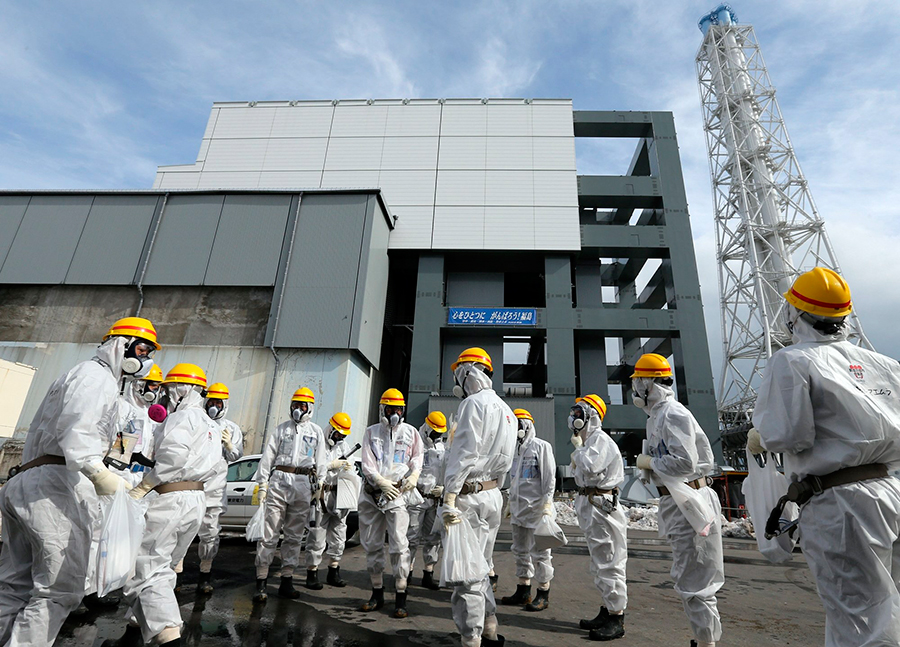Fukushima, Japan – The Japanese government has granted workers’ compensation to a man who developed leukemia after working on a cleanup crew at the ruined Fukushima Daiichi nuclear-power plant.
The man was not identified by name by the Ministry of Health, Labor and Welfare, but he reportedly had worked from October 2012 to December 2013 installing protective covers over damaged reactor buildings at the site. The compensation awarded to the man would cover treatment costs by supplementing his standard national health insurance.

The man is just one of the many workers who have participated in the cleanup effort at the Fukushima Daiichi since the tsunami that stroked the plant 4 years ago. The cleanup required more than 40,000 workers and led to multiple reactor meltdowns and blanketing the area with toxic debris. Since then, some of the workers have developed cancer and have demanded the Japanese government public insurance programs and plant owners from the Tokyo Electric Power Co., for compensation.
National debate
The consequences from the Fukushima accident have created a national debate at Japan causing the government to spend $10 billion to clean contaminated soil for the return of displaced former residents that now have stated they don’t want to return home. About 80,000 residents were displaced from the proximities of the plant. Radiation levels are well below what most scientists consider as dangerous, but they are still measurably higher than they were before the disaster.
Furthermore, according to the Health Ministry, the man who developed leukemia was exposed to less radiation than many, suggesting it might be needed much less radiation than expected to develop cancer, which could balloon the compensation cases. Workers’ claims are both politically and medically fraught. So far more than 20,000 people have been exposed to enough radiation that subsequent cancers could qualify as occupational illnesses, the ministry said in a statement.
Source: Seattle Times
